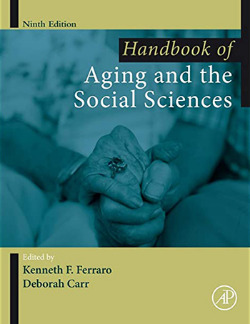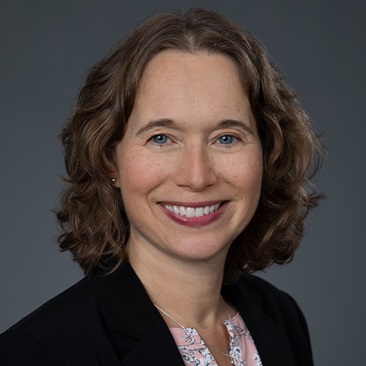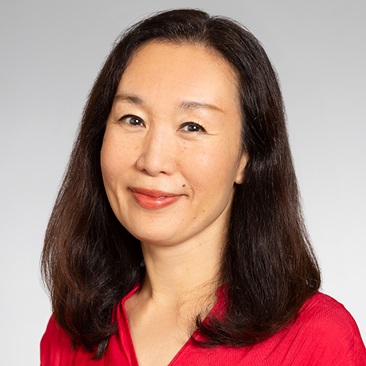Handbook of Aging and the Social Sciences
Jennifer Brooks, Andrew London, Jennifer Karas Montez, Emily Wiemers, Janet Wilmoth
Elsevier, January 2021

Four professors and a doctoral student from the Maxwell School’s Department of Sociology and Department of Public Administration and International Affairs have contributed to the completely revised ninth edition of the “Handbook of Aging and the Social Sciences” (Elsevier Academic Press). In three chapters, Maxwell scholars explore a range of issues related to aging and the life course, including: the link between education and adult health, the life-course consequences of women’s direct and indirect ties to the military, and how intergenerational family ties shape well-being over the life course.
In Chapter 6, “Educational Attainment and Adult Health,” Jennifer Karas Montez, professor of sociology, and Ph.D. candidate Jennifer Brooks examine the dynamic link between education—which the authors refer to as a “unique type of socioeconomic resource”—and health and well-being across age, place and time. Using American Community Survey (ACS) data, they document that the education-health association is dynamic across time and molded by social, economic, policy and epidemiological contexts, and that the reasons for the poor health of less-educated adults are not simply the opposite reasons for good health of more-educated adults. Montez is a Gerald B. Cramer Faculty Scholar in Aging Studies, director of the Center for Aging and Policy Studies (CAPS), co-director of the Policy, Place and Population Health (P3H) Lab, and a faculty associate in Syracuse University’s Aging Studies Institute (ASI). From 2018 to 2020, Montez was awarded the prestigious Carnegie Fellowship to support her research into the influence of U.S. state policies on health disparities. Brooks is a doctoral student and STEM Graduate Fellow in the sociology department at Syracuse University. She received a Certificate of Advanced Studies (C.A.S.) in Disability Studies in 2019, and a master’s in sociology in 2017.
In Chapter 12, “The Role of the Military in Women’s Lives,” Andrew S. London and Janet M. Wilmoth, both professors of sociology, examine how women from different birth cohorts have been influenced by the military directly and indirectly as private citizens, family members and military personnel. They explore how access to Department of Defense (DoD) and Department of Veterans Affairs (VA) benefits influences later-life outcomes and use data from the National Health Interview Survey (NHIS) to examine the characteristics of women with and without connections to the military. London is associate dean for administration and research in the Maxwell School of Citizenship and Public Affairs and an ASI faculty associate. He also has affiliations with the CAPS, the Center for Policy Research (CPR) and the Lerner Center for Public Health Promotion. Wilmoth, who served as an associate editor for the Handbook, is chair of Maxwell’s Department of Sociology, director of ASI, and has affiliations with CAPS and CPR.
In Chapter 13, “Intergenerational Transfers of Time and Money over the Life Course,” Emily E. Wiemers, associate professor of public administration and international affairs, and her co-author Sung S. Park (Harvard University) examine how intergenerational exchange happens, and why individuals support their aging family members. They document that intergenerational support is common, substantial and takes place across the life course but that patterns of intergenerational exchange vary substantially by race-ethnicity, gender and family structure. Using data from the Panel Study of Income Dynamics (PSID) they describe intergenerational kin ties and transfers in contemporary American families including financial support received from parents for college and purchasing a home. Wiemers is an ASI faculty associate and CAPS affiliate. She has received a variety of grants from the Russell Sage Foundation, the National Institute on Aging (NIA) and the Alfred P. Sloan Foundation.
ASI a is a collaborative initiative of the Maxwell School of Citizenship and Public Affairs and the David B. Falk College of Sport and Human Dynamics. Its mission is to coordinate and promote aging-related research, training and outreach at Syracuse University. With over 65 faculty affiliates from more than 17 departments, ASI provides multi-disciplinary research and education that is relevant to almost every academic discipline on campus.
ASI is the headquarters of the NIA-funded Center for Aging and Policy Studies (CAPS), a consortium of three universities that promotes, supports and disseminates interdisciplinary and policy-relevant research centered in the demography and economics of aging.
Maxwell’s Department of Sociology is a leader in aging studies scholarship, and several professors hold key elected positions within prominent professional associations. Montez is chair of the American Sociological Association (ASA)’s Section on Aging and the Life Course, London is chair of the ASA’s Section on Medical Sociology, and Wilmoth is treasurer and member of the board of directors of the Gerontological Society of America (GSA).
03/01/21
Related News
Research

Jan 5, 2026
Media Coverage

Dec 19, 2025
Research

Nov 3, 2025
Research

Sep 30, 2025